Les Gitanes

Les Gitanes
Canzone léviane – Les Gitanes – Marco Valdo M.I. – 2009
Cycle du Cahier ligné – 36
Les Gitanes est la trente-sixième chanson du Cycle du Cahier ligné, constitué d'éléments tirés du Quaderno a Cancelli de Carlo Levi.
Le Gitan et bien évidemment, la Gitane font partie de l'inconscient terrifié de nos « civilisations » sédentaires. Il y a la peur du noir, la peur du rouge, la peur du Tzigane. Pourtant, les Gitans sont là, ils viennent d'on ne sait trop où; en somme, ils dérangent nos « habitudes ». Léo Ferré disait qu'ils venaient du fond des temps et qu'ils sont nos parents anciens... Nos « civilisations » se comportent très mal avec leurs grands-parents.
Pour notre guerrier, prisonnier, blessé, grand rêveur devant l'éternité qui n'a plus comme arme que le flux des images et des pensées dans sa tête, les Gitanes viennent éclairer le paysage monstrueusement gris de la « civilisation... (Continues)
Canzone léviane – Les Gitanes – Marco Valdo M.I. – 2009
Cycle du Cahier ligné – 36
Les Gitanes est la trente-sixième chanson du Cycle du Cahier ligné, constitué d'éléments tirés du Quaderno a Cancelli de Carlo Levi.
Le Gitan et bien évidemment, la Gitane font partie de l'inconscient terrifié de nos « civilisations » sédentaires. Il y a la peur du noir, la peur du rouge, la peur du Tzigane. Pourtant, les Gitans sont là, ils viennent d'on ne sait trop où; en somme, ils dérangent nos « habitudes ». Léo Ferré disait qu'ils venaient du fond des temps et qu'ils sont nos parents anciens... Nos « civilisations » se comportent très mal avec leurs grands-parents.
Pour notre guerrier, prisonnier, blessé, grand rêveur devant l'éternité qui n'a plus comme arme que le flux des images et des pensées dans sa tête, les Gitanes viennent éclairer le paysage monstrueusement gris de la « civilisation... (Continues)
J'ai vu les gitanes,
(Continues)
(Continues)
Contributed by Marco Valdo M.I. 2009/7/31 - 21:07
Song Itineraries:
Rom, Racism, Porrajmos
Funeral Song
Oh, fair city what tragedy has beset you?
(Continues)
(Continues)
Contributed by adriana 2009/7/31 - 18:05
Song Itineraries:
Sacco and Vanzetti
Sacco o Vanzetti

[2009]
Album: Sacco o Vanzetti
Album: Sacco o Vanzetti
“Ci sono delle realtà negative e insormontabili. Nella società, nei rapporti personali, nei sentimenti. Più sei “antagonista” e più questi muri ti si alzano davanti. Comunque hai a disposizione una scelta, anche davanti all’insormontabile. Puoi scegliere di rifiutare del tutto ciò che non puoi affrontare, di sputare con disprezzo su quel muro e poi voltargli le spalle. O puoi scegliere di combattere fino alla fine, di prenderlo a martellate anche se sai che non potrai mai abbatterlo o scalfirlo. Ai giudici che – comunque e in ogni caso – ti condanneranno puoi opporre la tua dialettica più veemente. O semplicemente il silenzio. Puoi assomigliare a Nicola Sacco, o a Bartolomeo Vanzetti. Puoi renderti conto che, in vari momenti della tua vita, sei stato uno dei due e che, in fondo al tuo essere, convivono entrambi.
Pensaci, mentre percorri il miglio verde.”
Pensaci, mentre percorri il miglio verde.”
Quando il tuo destino viene a farti visita
(Continues)
(Continues)
Contributed by adriana 2009/7/31 - 12:57
Song Itineraries:
Sacco and Vanzetti
Don't Wake The Lion (Too Old To Die Young)

[1988]
Album "Wings of Heaven"
"This is as passionate an anti-war song as any heavy metal band ever recorded; rich in imagery it captures the jingoistic madness that accompanied the outbreak of World War One, which was known as The Great War until the outbreak of the second world conflict.
'There's a firework show tonight, everyone's been invited, we'll be finished by Christmas', young men talking of great times, while as dark clouds gather on the Maginot Line, barely heard voices of reason are whispering 'Don't wake the lion'."
Commento da Songfacts
Album "Wings of Heaven"
"This is as passionate an anti-war song as any heavy metal band ever recorded; rich in imagery it captures the jingoistic madness that accompanied the outbreak of World War One, which was known as The Great War until the outbreak of the second world conflict.
'There's a firework show tonight, everyone's been invited, we'll be finished by Christmas', young men talking of great times, while as dark clouds gather on the Maginot Line, barely heard voices of reason are whispering 'Don't wake the lion'."
Commento da Songfacts
It was the day that war broke out
(Continues)
(Continues)
Contributed by Alessandro 2009/7/31 - 12:47
Could You Please Oblige Us With A Bren Gun?
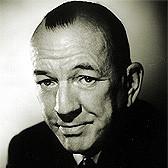
[1941]
In Gran Bretagna, all’inizio della seconda guerra mondiale, fu creata un’organizzazione di volontari, composta da coloro che per un motivo o per un altro non potevano andare in guerra (gli scarti, insomma) con il compito di contrastare un’eventuale invasione nazista. Inizialmente battezzata “Local Defence Volunteers" (LDV), l’organizzazione divenne presto nota come “Home Guard” e arrivò a contare circa 1.5 milione di volontari.
Essendo di per sé stessi “scarti”, o anziani strappati al bancone del pub, armati con il proprio vecchio fucile da caccia e le giberne o l’elemetto di un quarto di secolo prima, o militari a riposo un po’ imbolsiti, certo la visione di queste squadre un po’ raffazzonate doveva suscitare anche un po’ di ilarità…. E infatti l’acronimo LDV divenne presto “Look-Duck-Vanish”, che credo significhi più o meno “Guarda – che arrivano i crucchi - nasconditi, scompari”…... (Continues)
In Gran Bretagna, all’inizio della seconda guerra mondiale, fu creata un’organizzazione di volontari, composta da coloro che per un motivo o per un altro non potevano andare in guerra (gli scarti, insomma) con il compito di contrastare un’eventuale invasione nazista. Inizialmente battezzata “Local Defence Volunteers" (LDV), l’organizzazione divenne presto nota come “Home Guard” e arrivò a contare circa 1.5 milione di volontari.
Essendo di per sé stessi “scarti”, o anziani strappati al bancone del pub, armati con il proprio vecchio fucile da caccia e le giberne o l’elemetto di un quarto di secolo prima, o militari a riposo un po’ imbolsiti, certo la visione di queste squadre un po’ raffazzonate doveva suscitare anche un po’ di ilarità…. E infatti l’acronimo LDV divenne presto “Look-Duck-Vanish”, che credo significhi più o meno “Guarda – che arrivano i crucchi - nasconditi, scompari”…... (Continues)
Colonel Montmorency who was in Calcutta in ninety-two
(Continues)
(Continues)
Contributed by Alessandro 2009/7/31 - 10:17
Chicken Farm
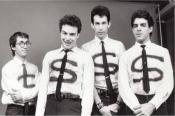
[1985]
Album "Frankenchrist"
"This song describes the suffering of Vietnamese people during and after the Vietnam war, as well as their perilous escape and their treatment once they got to America."
"This one's about the ramifications of war that take place after the war is over, whether it be economical devastation or leftover artillery. After a weak country loses a war, the living conditions are almost unbearable, and the only option for many citizens is to immigrate to a country like America. Unfortunately, oftentimes when they get here they face racism and poverty. It's still better than where they came from, but it's a no-win situation."
"This song describes a lot of horrible circumstances that all around the world have to face every day, call it afghanistan, iraq, cambodia, etc....and what makes me so angry is that a lot of times these conditions are caused by the american army,... (Continues)
Album "Frankenchrist"
"This song describes the suffering of Vietnamese people during and after the Vietnam war, as well as their perilous escape and their treatment once they got to America."
"This one's about the ramifications of war that take place after the war is over, whether it be economical devastation or leftover artillery. After a weak country loses a war, the living conditions are almost unbearable, and the only option for many citizens is to immigrate to a country like America. Unfortunately, oftentimes when they get here they face racism and poverty. It's still better than where they came from, but it's a no-win situation."
"This song describes a lot of horrible circumstances that all around the world have to face every day, call it afghanistan, iraq, cambodia, etc....and what makes me so angry is that a lot of times these conditions are caused by the american army,... (Continues)
Another rainy morning mingling at the market
(Continues)
(Continues)
Contributed by Alessandro 2009/7/31 - 08:57
Chemical Bomb

[1999]
Album "The Aquabats vs. the Floating Eye of Death!"
Album "The Aquabats vs. the Floating Eye of Death!"
I was at the supermarket
(Continues)
(Continues)
Contributed by Alessandro 2009/7/31 - 08:48
Black Rain
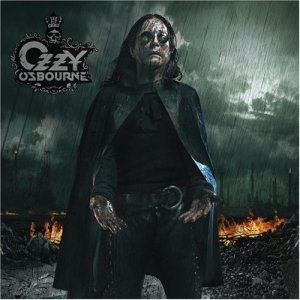
[2007]
Album "Black Rain"
Album "Black Rain"
The black rain is falling
(Continues)
(Continues)
Contributed by Alessandro 2009/7/31 - 08:34
Battle

[2007]
Dall'album di debutto, "Coco"
"I wrote 'Battle' about my frustration with our government and politics, my opinion on the war, and about people and the hurt and harm they can cause when they get too wrapped up in their own agenda. About wondering how they could feel no remorse, and why instead of owning up to their mistakes and doing what is right, they continue full force on the same path, refusing to take the necessary steps to begin to make things better again, and telling twisted stories and imposing fear along the way to gain supporters on their side that never even heard the truth."
Colbie Caillat, intervista ad MTV
Dall'album di debutto, "Coco"
"I wrote 'Battle' about my frustration with our government and politics, my opinion on the war, and about people and the hurt and harm they can cause when they get too wrapped up in their own agenda. About wondering how they could feel no remorse, and why instead of owning up to their mistakes and doing what is right, they continue full force on the same path, refusing to take the necessary steps to begin to make things better again, and telling twisted stories and imposing fear along the way to gain supporters on their side that never even heard the truth."
Colbie Caillat, intervista ad MTV
You thought we'd be fine
(Continues)
(Continues)
Contributed by Alessandro 2009/7/31 - 08:30
At 30,000 Ft
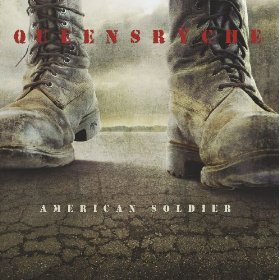
[2009]
Album "American Soldier"
"This song is about a pilot and his experience, which is very different from ground personnel. Pilots have a very different perspective on things, a very different job." He added: "The song deals with this particular soldier's feelings of being separate from the devastation he is inflicting. He's above it all, flying 30,000 feet in the air, dropping bombs on targets. He's not involved in hand-to-hand ground combat. He said that it's a strange feeling to know that you've just wiped out an entire city with a touch of a button, and then you're back at the base, watching reruns of a TV show. It's just another day at the office. There's no emotional attachment to it like a guy who was in a platoon and may have lost buddies. The pilot is dealing with a whole different set of issues that are a lot harder to define...
I wrote this song, and then months later I got... (Continues)
Album "American Soldier"
"This song is about a pilot and his experience, which is very different from ground personnel. Pilots have a very different perspective on things, a very different job." He added: "The song deals with this particular soldier's feelings of being separate from the devastation he is inflicting. He's above it all, flying 30,000 feet in the air, dropping bombs on targets. He's not involved in hand-to-hand ground combat. He said that it's a strange feeling to know that you've just wiped out an entire city with a touch of a button, and then you're back at the base, watching reruns of a TV show. It's just another day at the office. There's no emotional attachment to it like a guy who was in a platoon and may have lost buddies. The pilot is dealing with a whole different set of issues that are a lot harder to define...
I wrote this song, and then months later I got... (Continues)
Whatever happens now
(Continues)
(Continues)
Contributed by Alessandro 2009/7/31 - 08:20
Il fucile

salve! scrivo dall'ass.ne mancamezzora. a breve sara' disponibile il cd live di Andrea con la nuova versione piano e voce di questo brano. Per ora vorrie segnalarvi "i fantasmi di Bariano" brano anticipazione che, assieme al demo 2008,è interamente scaricabile all'indirizzo sottostante!
un abbraccio a tutti :)
Il fucile
un abbraccio a tutti :)
Il fucile
sonia cenceschi 2009/7/31 - 00:21
Tarantella dell'ultimo bandito

[2008-2009]
Album: Mazel Tov
Album: Mazel Tov
Tra nere piaghe nella vanità
(Continues)
(Continues)
Contributed by Luca 'The River' 2009/7/30 - 17:19
Song Itineraries:
Resistance against Nazi-Fascism in Italy and Europe
Fool Me Fool You

[2009]
Album "Hidden Conversations"
Un altro bel brano dell'incredibile musicista e songwriter Terry Callier, che è tornato direttamente dagli anni '70 arricchendo il suo originario jazz folk sofisticato con l'elettronica trip hop in stile Massive Attack (con cui collabora da tempo)...
Album "Hidden Conversations"
Un altro bel brano dell'incredibile musicista e songwriter Terry Callier, che è tornato direttamente dagli anni '70 arricchendo il suo originario jazz folk sofisticato con l'elettronica trip hop in stile Massive Attack (con cui collabora da tempo)...
Well….?
(Continues)
(Continues)
Contributed by Alessandro 2009/7/30 - 15:58
La Chanson du Guerrier sur la Contrescarpe

La Chanson du Guerrier sur la Contrescarpe
Canzone léviane – La Chanson du Guerrier sur la Contrescarpe – Marco Valdo M.I. – 2009
Cycle du Cahier ligné – 35
La Chanson du Guerrier sur la Contrescarpe est la trente-cinquième chanson du Cycle du Cahier ligné, constitué d'éléments tirés du Quaderno a Cancelli de Carlo Levi.
Dans la Chanson du Guerrier sur la Contrescarpe, on retrouve ce même personnage qui poursuit son soliloque où il mêle sa vie immédiate, parle de ce qui et de qui l'entoure – ici, les nonnes qui le soignent, et continue à développer sa méditation, cette forme de résistance intellectuelle. L'être humain est aussi – et d'abord – une pensée en perpétuel écoulement, comme un fleuve qui venu de la montagne, traverse la ville et s'en va finir dans la mer. On a comme l'impression que s'il s'arrêtait de penser, il cesserait d'exister.
Oh, oh, dit Lucien l'âne, voilà notre... (Continues)
Canzone léviane – La Chanson du Guerrier sur la Contrescarpe – Marco Valdo M.I. – 2009
Cycle du Cahier ligné – 35
La Chanson du Guerrier sur la Contrescarpe est la trente-cinquième chanson du Cycle du Cahier ligné, constitué d'éléments tirés du Quaderno a Cancelli de Carlo Levi.
Dans la Chanson du Guerrier sur la Contrescarpe, on retrouve ce même personnage qui poursuit son soliloque où il mêle sa vie immédiate, parle de ce qui et de qui l'entoure – ici, les nonnes qui le soignent, et continue à développer sa méditation, cette forme de résistance intellectuelle. L'être humain est aussi – et d'abord – une pensée en perpétuel écoulement, comme un fleuve qui venu de la montagne, traverse la ville et s'en va finir dans la mer. On a comme l'impression que s'il s'arrêtait de penser, il cesserait d'exister.
Oh, oh, dit Lucien l'âne, voilà notre... (Continues)
Voici ma chanson, la chanson
(Continues)
(Continues)
Contributed by Marco Valdo M.I. 2009/7/29 - 22:14
Where Have all the Flowers Gone

GAELICO IRLANDESE / IRISH GAELIC (GAEILGE) / GAÉLIQUE IRLANDAIS [1]
La versione in gaelico irlandese (o irlandese, tout court) contribuita da ARZ, che desiderava vedere una versione basca della canzone: anche se con un po' di ritardo, lo accontentiamo volentieri. NB. Molti siti (tra i quali questo) riportano un'altra versione irlandese di Feargal Ó Béarra, Cá bhfuil siad uainn, scoth na mbláth?; ma risulta introvabile. Almeno per ora.
Great job !
I'd really like to see a Basque version.
And, if you're interested, this link will lead you to the Gaeilge version of the song!
A version into Irish Gaelic (or, simply, Irish) contributed by ARZ, who wished to see a Basque version of the song: we satisfy now his request with pleasure, though with some delay. Note. Several sites (this, for exemple) mention another Irish version by Feargal Ó Béarra, Cá bhfuil siad uainn, scoth na mbláth?; but we haven't found it. For the moment, insofar. [CCG/AWS Staff]
Great job !
I'd really like to see a Basque version.
And, if you're interested, this link will lead you to the Gaeilge version of the song!
A version into Irish Gaelic (or, simply, Irish) contributed by ARZ, who wished to see a Basque version of the song: we satisfy now his request with pleasure, though with some delay. Note. Several sites (this, for exemple) mention another Irish version by Feargal Ó Béarra, Cá bhfuil siad uainn, scoth na mbláth?; but we haven't found it. For the moment, insofar. [CCG/AWS Staff]
CÁ nDEACHAIGH NA BLÁTHANNA?
(Continues)
(Continues)
Contributed by ARZ 2009/7/29 - 21:13
Everybody's Got A Right To Live

Testo pubblicato su Broadside Magazine n.89 del 1968 e sul libretto del disco di Kirkpatrick e Jimmy Collier che prende il titolo dalla canzone.
EVERYBODY'S GOT A RIGHT TO LIVE
(Continues)
(Continues)
Contributed by Alessandro 2009/7/29 - 15:40
Always Tell the Voter What the Voter Wants to Hear
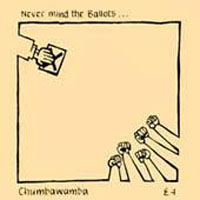
[1987]
Album "Never Mind The Ballots"
Album "Never Mind The Ballots"
Welcome to Never Mind The Ballots. The phone lines are now open. If you'd like to put a question to the candidates the number to ring is 0532779463.
(Continues)
(Continues)
Contributed by Alessandro 2009/7/29 - 12:00
Almirante
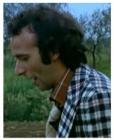
Mi accorgo solo adesso, Riccardo, che hai dedicato anche a me la tua precisa traduzione greca (complimenti anche per la lettura), accomunandomi ai combattenti antifascisti greci. Questo però non me lo merito, perché se io nutro ovviamente grande stima per loro, loro che motivi avrebbero per nutrirne per me, che non ho fatto nulla ? Quello che faccio adesso non è poi un vero combattere e, quando anche lo fosse, sarebbe in ogni caso fuori tempo massimo. Non posso salire neanche un gradino del monumento: se me lo permettono, mi inchino da fuori. In ogni caso, ti ringrazio.
Gian Piero Testa 2009/7/29 - 00:32
Miniera

"Mi raccontava anni fa Francesco Mongiardo (gli americani lo pronunciavano “Frank Majority”), scalpellino, figlio di minatore immigrato dalla Campania in West Virginia: “Mio padre sbarcò a New York nel 1902. Dopo passato il controllo immigrazione, l’hanno mandati alla stazione centrale e lì nessuno sapeva l’inglese, e gli hanno messo delle targhette al collo con la destinazione – come bestiame, insomma. E li hanno marcati per il West Virginia. L’hanno messi sul treno, e spediti in West Virginia.” Li chiamavano blue trains: treni con i finestrini verniciati di blu, così che gli immigrati spediti a destinazione ignota non vedevano neanche dove stavano andando. Continua Frank Majority: “Arrivarono che era notte. A Beckley, credo, nel centro dei giacimenti di carbone. E lì accanto, lungo i binari, c’erano fornaci aperte che bruciavano il carbone per fare il coke. I fuochi accendevano il cielo... (Continues)
Alessandro 2009/7/28 - 23:14
Johnny 99
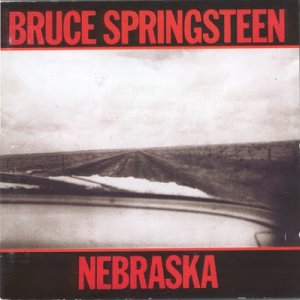
[1982]
Album "Nebraska"
Interpretata anche da Johnny Cash, Los Lobos
"[...] Molti anni fa, quando Ronald Reagan si disse suo ammiratore, Bruce Springsteen commentò: chissà se ha mai sentito Johnny 99?... Pare che questo concerto lo dobbiamo al ministro Maroni, che ha evitato di farlo annullare dicendosi suo fan. Chissà se Maroni ha mai ascoltato Johnny 99? Un operaio che perde il lavoro, che non ce la fa a pagare il mutuo (ma quand’è stata scritta questa canzone? Un quarto di secolo fa, o l’altro giorno?), prende un fucile in mano e spara (se fosse francese, metterebbe le bombe sotto la fabbrica o sequestrerebbe un dirigente), spiega al giudice che a mettergli l’arma in mano non è solo la perdita del lavoro e della casa ma soprattutto le idee che questo disastro gli ha fatto venire in testa. “Avevo debiti che nessun uomo onesto può ripagare”, dice Johnny 99. [...]
Dal blog di Alessandro... (Continues)
Album "Nebraska"
Interpretata anche da Johnny Cash, Los Lobos
"[...] Molti anni fa, quando Ronald Reagan si disse suo ammiratore, Bruce Springsteen commentò: chissà se ha mai sentito Johnny 99?... Pare che questo concerto lo dobbiamo al ministro Maroni, che ha evitato di farlo annullare dicendosi suo fan. Chissà se Maroni ha mai ascoltato Johnny 99? Un operaio che perde il lavoro, che non ce la fa a pagare il mutuo (ma quand’è stata scritta questa canzone? Un quarto di secolo fa, o l’altro giorno?), prende un fucile in mano e spara (se fosse francese, metterebbe le bombe sotto la fabbrica o sequestrerebbe un dirigente), spiega al giudice che a mettergli l’arma in mano non è solo la perdita del lavoro e della casa ma soprattutto le idee che questo disastro gli ha fatto venire in testa. “Avevo debiti che nessun uomo onesto può ripagare”, dice Johnny 99. [...]
Dal blog di Alessandro... (Continues)
Well they closed down the auto plant in Mahwah late that month
(Continues)
(Continues)
Contributed by Alessandro 2009/7/28 - 22:40
Song Itineraries:
The War of Labour: Emigration, Immigration, Exploitation, Slavery
Adam The Inventor
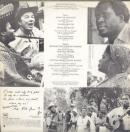
Curioso... Wolf Rilla, uno degli autori del brano, è il regista del famoso "Il villaggio dei dannati" (1960), film di science fiction dove gli abitanti di un villaggio cadono in un sonno letargico, il paese rimane come isolato da un invisibile cupola di energia e, quando tutti si svegliano, si scopre le donne sono tutte gravide, destinate a partorire dei bambini inquietanti, molto simili fra loro e dotati di poteri eccezionali... una stirpe di alieni. Molto bello. P.v.c.
Alessandro 2009/7/28 - 14:12
The Fires of Napalm
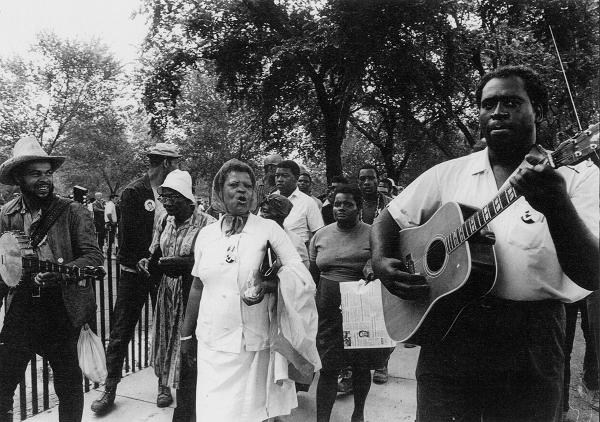
[1968]
Album“Everybody’s Got A Right To Live”
con il Rev. Frederick Douglass Kirkpatrick
Testo pubblicato sul libretto dell’album e su Broadside Magazine n.91 del maggio 1968. Presente anche in Veleno di Piombo sul Muro, le canzoni del Black Power, a cura di Alessandro Portelli, editori Laterza, 1969.
Sul suo sito Jimmy Collier oggi compare vestito da cowboy e non c’è quasi traccia della sua vecchia discografia e, in particolare, di quel potentissimo lavoro intitolato “Everybody’s Got A Right To Live” che realizzò nel 1968 per le edizioni Broadside/Smithsonian Folkways a quattro mani con il reverendo Frederick Douglass Kirkpatrick, pastore, folksinger ed attivista per i diritti civili, fondatore dei “Deacons for Defense and Justice”, gruppo armato di autodifesa della gente di colore attivo in Lousiana e Mississippi e antesignano delle Black Panthers.
Eppure Collier – di padre nero... (Continues)
Album“Everybody’s Got A Right To Live”
con il Rev. Frederick Douglass Kirkpatrick
Testo pubblicato sul libretto dell’album e su Broadside Magazine n.91 del maggio 1968. Presente anche in Veleno di Piombo sul Muro, le canzoni del Black Power, a cura di Alessandro Portelli, editori Laterza, 1969.
Sul suo sito Jimmy Collier oggi compare vestito da cowboy e non c’è quasi traccia della sua vecchia discografia e, in particolare, di quel potentissimo lavoro intitolato “Everybody’s Got A Right To Live” che realizzò nel 1968 per le edizioni Broadside/Smithsonian Folkways a quattro mani con il reverendo Frederick Douglass Kirkpatrick, pastore, folksinger ed attivista per i diritti civili, fondatore dei “Deacons for Defense and Justice”, gruppo armato di autodifesa della gente di colore attivo in Lousiana e Mississippi e antesignano delle Black Panthers.
Eppure Collier – di padre nero... (Continues)
You know we’re wrong
(Continues)
(Continues)
Contributed by Alessandro 2009/7/28 - 14:00
Song Itineraries:
War in Viet Nam as seen from the U.S.
Abdallâh

[2008]
Album "Ce que l'on sème"
Auteur, compositeur: Guizmo
Arrangements: Tryo - Hélène Bohy
Una canzone che parla dei tuareg del Niger, seduti su immensi giacimenti di uranio che però sono controllati dai neocolonialisti francesi. Quel che la canzone non dice è che, a parzialissimo risarcimento per la predazione delle loro risorse, ai tuareg è consentito gestire il traffico dei migranti che passano dal Niger per raggiungere la Libia e poi l'Italia e l'Europa... E questo con la benedizione degli accordi Sarkozy-Gheddafi-Berlusconi.
Racconta un passeur tuareg intervistato dal giornalista de L'Espresso Fabrizio Gatti per la sua inchiesta intitolata "La nuova ondata":
"Da novembre scorso [2008] è come se la Libia avesse dato il via libera. Ora che Gheddafi è stato eletto presidente dell'Unione africana, non può certo rimandare indietro i suoi concittadini africani. Abbiamo saputo che l'Italia... (Continues)
Album "Ce que l'on sème"
Auteur, compositeur: Guizmo
Arrangements: Tryo - Hélène Bohy
Una canzone che parla dei tuareg del Niger, seduti su immensi giacimenti di uranio che però sono controllati dai neocolonialisti francesi. Quel che la canzone non dice è che, a parzialissimo risarcimento per la predazione delle loro risorse, ai tuareg è consentito gestire il traffico dei migranti che passano dal Niger per raggiungere la Libia e poi l'Italia e l'Europa... E questo con la benedizione degli accordi Sarkozy-Gheddafi-Berlusconi.
Racconta un passeur tuareg intervistato dal giornalista de L'Espresso Fabrizio Gatti per la sua inchiesta intitolata "La nuova ondata":
"Da novembre scorso [2008] è come se la Libia avesse dato il via libera. Ora che Gheddafi è stato eletto presidente dell'Unione africana, non può certo rimandare indietro i suoi concittadini africani. Abbiamo saputo che l'Italia... (Continues)
Si le monde était à refaire
(Continues)
(Continues)
Contributed by Alessandro 2009/7/28 - 08:16
La ballata dell'ex

La verita' non abita né a destra né (sopratutto) a sinistra...
(Don Curzio)
(Don Curzio)
La verità, fortunatamente, non abita da nessuna parte. Soprattutto quella cosiddetta "rivelata", direi, ancor più di quelle "destre" o "sinistre". Fosse per me, farei una lotta senza quartiere per abolirla del tutto, la "verità". Nel suo nome sono state commesse le peggiori tragedie dell'umanità, da qualsiasi parte. Saluti! [RV]
2009/7/27 - 17:45
Now That The War Is Over

[1975]
Testo pubblicato su Broadside Magazine n.131 dell’aprile/giugno 1976.
Si tratta di un brano inedito. Credo sia una delle prime canzoni scritte da Willie Nile, il cui disco di debutto è del 1980.
Testo pubblicato su Broadside Magazine n.131 dell’aprile/giugno 1976.
Si tratta di un brano inedito. Credo sia una delle prime canzoni scritte da Willie Nile, il cui disco di debutto è del 1980.
Now that the war is over
(Continues)
(Continues)
Contributed by Alessandro 2009/7/27 - 15:39
Song Itineraries:
War in Viet Nam as seen from the U.S.
War In The Key of W
Thanks to Mr Odysseus Muse for this valuable contribution. Just one little thing: ours is a "block-letter free" (or "anti-capitalist" :-DDDD) website, i.e., we do not accept lyrics written in block letters and with textual indications as "Verse", "Chorus" etc. Lyrics should always be written in small letters. Thanks again!
AWS/CCG Staff 2009/7/27 - 15:30
Inno a Oberdan
Anonymous

Vorrei precisare che Oberdan non era così folle da lanciarsi "a bomba" contro Kaiser Franz solo perchè turbato dalla morte di Garibaldi... In realtà, il suo gesto, consapevolmente suicida, era dovuto all'adesione dell'Italia alla Triplice Alleanza (Germania, Austria e Russia), che sottointendeva la rinuncia a Trento e Trieste e quindi la sconfessione dell'irredentismo...
Se si aggiunge che, per suggellare la nuova alleanza con gli imperi centrali, il re Umberto I nell'ottobre del 1881 fu invitato a Vienna dove, insignito del titolo onorifico di ufficiale dell'esercito austriaco, se ne andava tutto tronfio sfoggiando la divisa di colonnello del 28° fanteria, lo stesso reggimento che nel 1848/49, durante la prima guerra d'indipendenza, aveva fatto a pezzi gli italiani a Custoza, a Novara, a Brescia...
Se si aggiunge che l'anno seguente Kaiser Franz pretese di essere accolto in pompa magna... (Continues)
Se si aggiunge che, per suggellare la nuova alleanza con gli imperi centrali, il re Umberto I nell'ottobre del 1881 fu invitato a Vienna dove, insignito del titolo onorifico di ufficiale dell'esercito austriaco, se ne andava tutto tronfio sfoggiando la divisa di colonnello del 28° fanteria, lo stesso reggimento che nel 1848/49, durante la prima guerra d'indipendenza, aveva fatto a pezzi gli italiani a Custoza, a Novara, a Brescia...
Se si aggiunge che l'anno seguente Kaiser Franz pretese di essere accolto in pompa magna... (Continues)
Alessandro 2009/7/27 - 13:22
Les Brindilles d'Accettura

Les Brindilles d'Accettura
Canzone léviane – Les Brindilles d'Accettura – Marco Valdo M.I. – 2009
Cycle du Cahier ligné – 34
Les Brindilles d'Accettura est la trente-quatrième chanson du Cycle du Cahier ligné, constitué d'éléments tirés du Quaderno a Cancelli de Carlo Levi.
La pensée du prisonnier flotte dans la nuit des souvenirs, puis, elle dérive sur la mer de la méditation. En somme, comme Montaigne, il voit le monde à sa manière et somme toute, philosophe.
Nous y voilà, dit l'âne Lucien, j'imaginais bien que tu allais le dire un jour que la canzone est une manière de philosopher. Et je suis très intéressé à ce que tu me dises pourquoi la philosophie, comme on la pratiquait de mon temps d'âne, passe par la canzone. Jusqu'ici, il était entendu que dans la chanson, on avait entendu parler d'amour, on y avait conté des aventures en tous genres, on y avait répandu le vide de l'indigence... (Continues)
Canzone léviane – Les Brindilles d'Accettura – Marco Valdo M.I. – 2009
Cycle du Cahier ligné – 34
Les Brindilles d'Accettura est la trente-quatrième chanson du Cycle du Cahier ligné, constitué d'éléments tirés du Quaderno a Cancelli de Carlo Levi.
La pensée du prisonnier flotte dans la nuit des souvenirs, puis, elle dérive sur la mer de la méditation. En somme, comme Montaigne, il voit le monde à sa manière et somme toute, philosophe.
Nous y voilà, dit l'âne Lucien, j'imaginais bien que tu allais le dire un jour que la canzone est une manière de philosopher. Et je suis très intéressé à ce que tu me dises pourquoi la philosophie, comme on la pratiquait de mon temps d'âne, passe par la canzone. Jusqu'ici, il était entendu que dans la chanson, on avait entendu parler d'amour, on y avait conté des aventures en tous genres, on y avait répandu le vide de l'indigence... (Continues)
Le petit Comte, on ne le voyait pas;
(Continues)
(Continues)
Contributed by Marco Valdo M.I. 2009/7/26 - 18:41
301 guerre fa
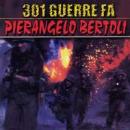
GRANDE COME E' SEMPRE STATO IL GRANDE BERTOLI....Ciao Pierangelo.............
ENZO 2009/7/26 - 18:22
Nella mia ora di libertà

Grazie, buona idea, solo che non risponde mai nessuno...
Continuerò a provare! ciao
Continuerò a provare! ciao
vane 2009/7/26 - 18:02
Che je fa
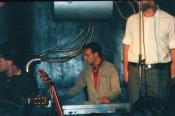
Canzone ironica sull'omertà mafiosa
Questa è la storia , la storia de ‘n paese
(Continues)
(Continues)
Contributed by DonQuijote82 2009/7/26 - 17:37
Song Itineraries:
Mafia and Mafias
×
![]()


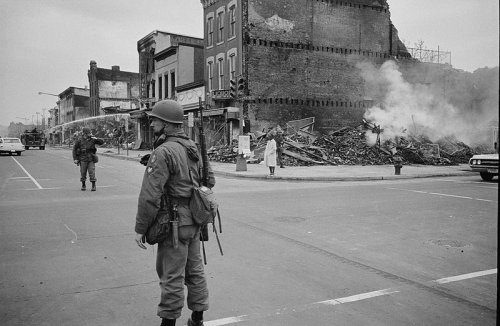
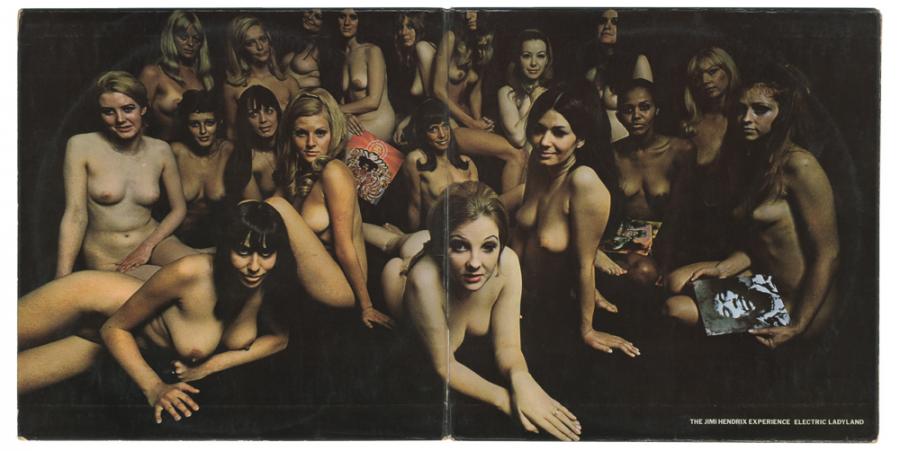


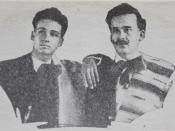

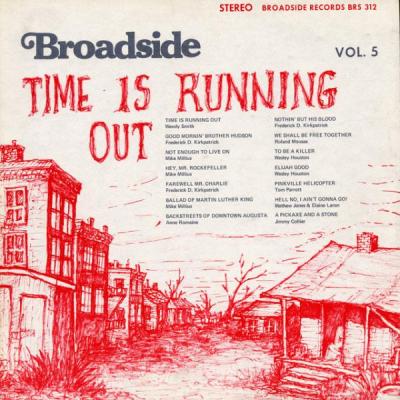
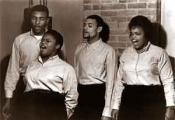


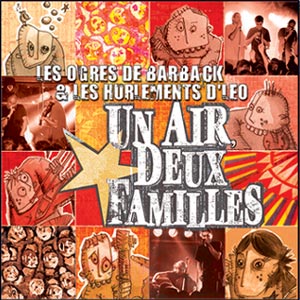



Album "Solitude Standing" (1987)
Questa è solo una proposta... poi, decidete voi...
Perchè non arricchire il percorso dedicato alla violenza sulle donne e includere anche le canzoni che riguardano la violenza sull'infanzia, che secondo me non si limita soltanto ai "bambini-soldato"?
L'idea mi è venuta leggendo l'articolo che segue, pubblicato su La Repubblica del 21 maggio 2009... le cifre riportate dal rapporto della commissione d'indagine del governo irlandese sui bambini abusati negli istituti cattolici del paese tra gli anni '40 e gli anni '80, sono le cifre di una vera e propria guerra...
A few years ago, I used to see this group of children playing in front of my building, and there was one of them, whose name was Luka, who seemed a little bit distinctive from the other children. I always remembered his name, and I always remembered his face, and I didn't know much about... (Continues)